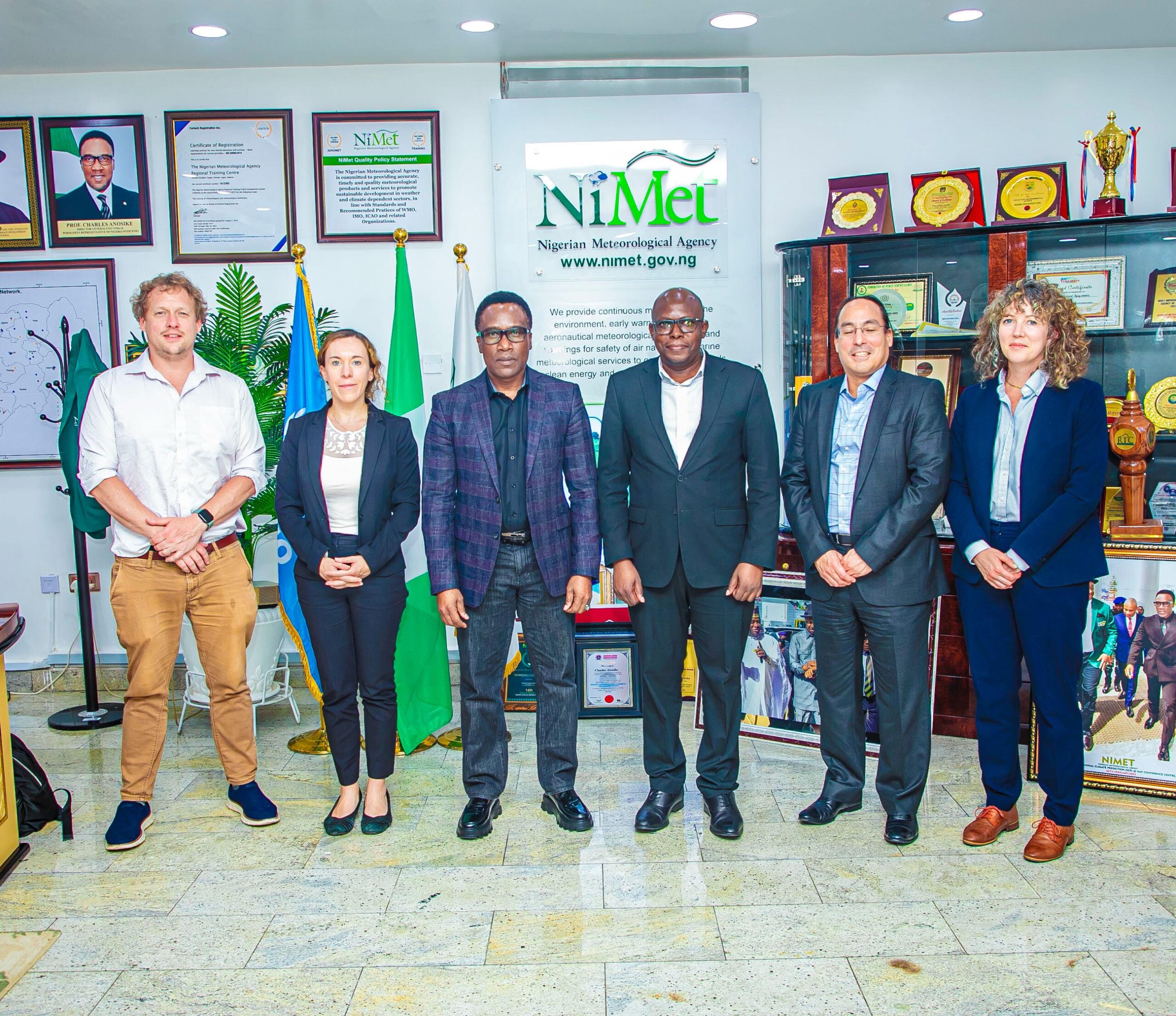
By Miriam Humbe
The Nigerian Meteorological Agency (NiMet) on Tuesday, June 3, 2025, hosted a delegation from the World Bank at its headquarters in Abuja as part of an ongoing high-level mission focused on Disaster Risk Management (DRM) in Nigeria.
The mission, led by Mr. Francis Samson Nkoka, Senior Disaster Risk Management Specialist at the World Bank, seeks to strengthen technical collaboration with Nigerian institutions to bolster national resilience against climate and weather-related hazards.
In his remarks, Professor Charles Anosike, NiMet DG/CEO and Permanent Representative of Nigeria with the World Meteorological Organization (WMO), emphasized that strengthening climate advisory services requires a multifaceted approach focused on improving the accuracy and timeliness of information, tailoring services to local needs, and enhancing stakeholder collaboration.
He further noted that leveraging technology, securing financial support, and investing in training are all essential components of building a resilient system.
The World Bank delegation comprised Mr. Oscar Ishizawa, Lead Specialist in Disaster Risk Management; Ms. Mary Elinor Boyer, Senior Specialist in Disaster Risk Management; Ms. Nathalie Andrea Wandel, Specialist in Disaster Risk Management; and Mr. Christopher Cameron Hann, a consultant in hydrometeorology.
The visit builds upon earlier engagements held in January 2025 between the World Bank and the Federal Government of Nigeria, which focused on establishing integrated frameworks for climate risk management and emergency preparedness.
The delegation was given a guided tour of NiMet’s facilities, where they observed the cutting-edge technologies employed in generating accurate weather forecasts and climate advisories.
The delegation commended NiMet’s efforts in modernizing its infrastructure and delivering timely, science-based climate services that contribute to national development goals.
This engagement reflects a shared commitment between NiMet and the World Bank to enhance Nigeria’s resilience to climate shocks through innovation, strategic investment, and sustained institutional partnerships.


